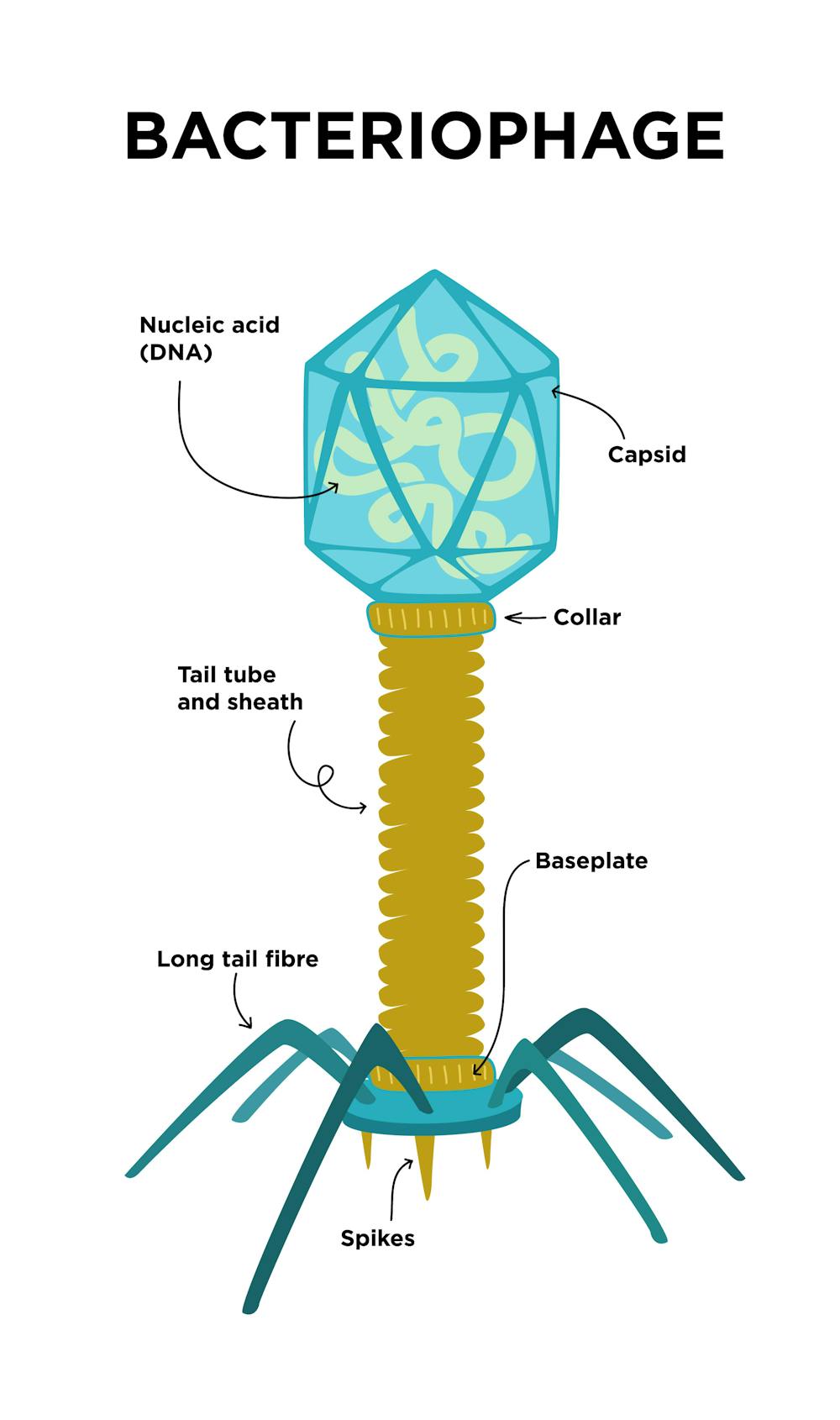Context
-
With antibiotic resistance rising, scientists think bacteriophages — which hunt and kill bacteria — could cure bacterial infections.
Bacteriophages: Anti-bacterial guard dogs
- The vast majority of viruses inside us are bacteriophages viruses that kill bacteria in our microbiomes.

Courtesy: The Conversation - Bacteriophages, also known as phages, are harmless to human cells as they do not recognize them as their bacterial prey.
- They work by hunting down bacteria and attaching themselves to the surface of a bacterial cell, before injecting viral DNA material into the cell.
- The viral DNA then replicates inside the bacteria, sometimes by borrowing the DNA replication hardware of the bacteria.
- Once enough new viruses have been created inside the bacterial cell, the cell then bursts to release the new viral particles.
- All this takes just 30 minutes, meaning one virus can become many in a couple of hours.
- For now, bacteriophages are unlikely to replace antibiotics.
- But scientists are optimistic they could be used in combination to make antibiotics more effective, especially against resistant strains of bacteria.
Source: IE
Visit Abhiyan PEDIA (One of the Most Followed / Recommended) for UPSC Revisions: Click Here
IAS Abhiyan is now on Telegram: Click on the Below link to Join our Channels to stay Updated
IAS Abhiyan Official: Click Here to Join
For UPSC Mains Value Edition (Facts, Quotes, Best Practices, Case Studies): Click Here to Join
